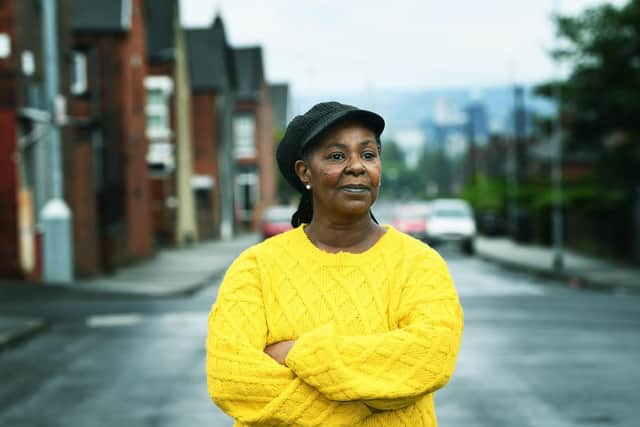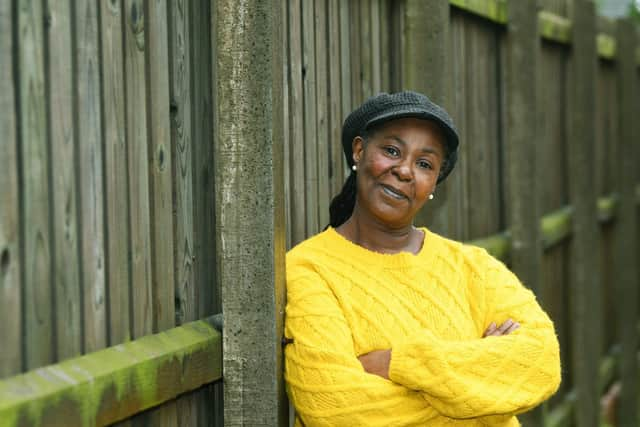Racism ‘still embedded in the system in Leeds’ says BME hub worker
and live on Freeview channel 276
Annette Morris works with the Leeds Black and Minority Ethnic hub and has told the Yorkshire Evening Post how racism is still “embedded in the system” within the city.
She has opened up about the “aggressive” time she had at school and how for generations her family has had to fight its corner.
Advertisement
Hide AdAdvertisement
Hide AdDecades later and she says, that despite the efforts of Leeds as a city, there is still so much cross generational work to be done to tackle racism.


Policy Change
Ms Morris said from trying to make policy change, to having a conversation about racism and even health inequality, it is still difficult to get the voices of BAME people listened to in a constructive way.
She said: “At the BME hub we do feel that in Leeds particularly there is definitely racism embedded in the system. When you try to get certain things done and get points across we find it really difficult.
“Even talking about the issue of race is really, really hard. People get scared, they get worried about having to talk about it in case it exposes something.


“We have this barrier constantly, all of the time.”
Advertisement
Hide AdAdvertisement
Hide AdIt extends into other areas such as health and well-being. It has recently been reported that Covid-19 affects more BAME people and as for mental health, BAME is over-represented when it comes to people that are in the mental health system and have been sectioned.
Campaigners say that racism has been put under the umbrella of inequality which takes into account disability and the Lesbian, gay, bisexual, and transgender (LGBT) movement.
Diluted
And they fear it has diluted the conversation about race and stigma.
She added: “Because it got put in with all of this, and that is what has happened, it complicated the race agenda. That is one of the reasons why we are here now.”
Advertisement
Hide AdAdvertisement
Hide AdAs for policing, Annette said BAME people are more likely to be subjected to police stop and searches and being “targeted” when they are in a group.
It is something she had to brace her three sons for while they were growing up.
She said: “I had that conversation with my children - to tell them it is different for you. For my boys particularly, ‘watch out for the police, they will target you’. I had to prepare them for the harsh reality of racism in the world.”
It was the same at school, she says.
Annette was born to Caribbean parents but grew up and went to school in Leeds. She said she experienced “massive amounts” of racism at school and had to warn her children what was to come.
Fight
“We had to fight our way through school,” she said.
Advertisement
Hide AdAdvertisement
Hide Ad“I had to educate my children about their experiences. My son, now 37, went through the same that I did. I had to go to school and fight the corner. A lot of black parents went through that and are still now.”
While generations pass, racism is lessening to some extent, says Annette, but warns that the same will happen to her grandchildren if it is not stopped now.
Her twin daughters, who are ten years younger than her boys, were not subjected to the same levels of abuse and have a much broader thinking circle of friends. But she said for some young people, other ideologies have been passed down by previous generations.
The solution?
The key to addressing this is education, she says, and going back to where racism started in modern history starting with the industrial revolution, race wars of the 1930s and post war mis-conceptions that Caribbean soldiers, who fought for the UK and chose to remain here afterwards, were taking people’s jobs.
Advertisement
Hide AdAdvertisement
Hide AdShe added: “I think that what needs to happen, there needs to be some cross-generation work so young people need to educate older people.
“Older people need to know their history because I don’t think they were taught it in school. A lot don’t even know what happened during colonisation, anything about slavery or the take-over of India.
“Education plays a massive part going forward because that is what it has to be about.
“We need re-education to recognise where racism slipped in and became embedded in the system and where we can root it back out. If we understand the root, we can get to it. If we don’t, we can’t get to it.”